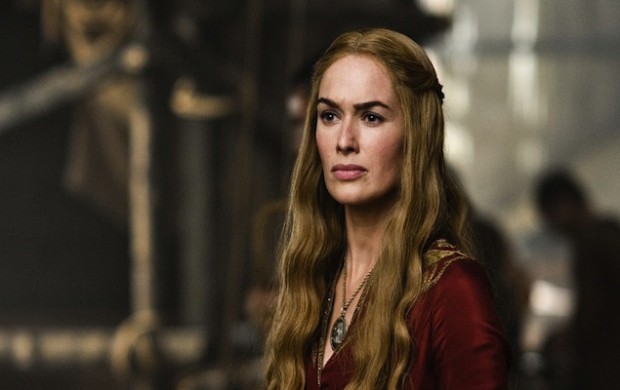Why feminists like me are addicted to Game of Thrones
written for The Spectator, 16 June 2015
This post contains spoilers and discussion of the Season 5 Finale.
My name is Kate Maltby, I’m a feminist, and I’m addicted to Game of Thrones.
I’ve known I’ve had a problem for some time, really. It all started at the end of Season 3. Languidly cat-sitting for a friend (this is what all feminists do on our weekends), I discovered that she had the last three episodes of Season 3 taped. I knew the show was famous for turning woman into nude pin cushions, but this didn’t count as watching, obviously. More like passing the time. Anyway, I had a cold at the time, so I was ill. It was allowed.
When I binged my way through Seasons 4 and 5, counting down the days until each Monday night, it wasn’t really addiction. It was cultural criticism. You have to know your patriarchal enemy. I only went back and watched Season 1 to help me navigate – I’ve never even watched Season 2 or most of Season 3, which I asserted until recently as proof positive I don’t have a problem. And I haven’t read the books, with their limp prose and fan-boy made-up languages: I’m a literary snob. After all, why would you need to either read or watch to catch-up on the storylines, when there are hours one can spend on sites like A Wiki of Ice and Fire (detailing the books) or Game of Thrones Wiki (chronicling the TV show)? Manage your time right, and you can spend more time on either website than it actually takes to read the books and watch every TV episode. Procrastination ground zero.
Naturally, I’ve had high-minded things to say about the show’s problematic gender politics. Every Monday night, I gather with my sister-feminists on Twitter and muse aloud about the show’s treatment of female characters. And yes, it’s appalling. Last night, Queen Cersei Lannister, who’s spent the last five seasons channelling Snow White’s stepmother on speed, had a moment of comeuppance. In public penance for her crimes, she was stripped naked, sentenced to walk through the streets of her capital while every man, woman or child could spit upon her body (which, predictably, didn’t look as if it had raised three teenage children). A woman who’d fulfilled our worst stereotypes of women who get too close to power – manipulating men to do her murders for her – cut down to size, and reminded that any man on the street would take pleasure in telling her to suck his cock.
This was a public shaming ritual in which we all participated, whether we were watching from Westeros or from our living rooms. If, as men were eager to tell me last night, the scene wasn’t a misogynistic porn-fest, but had the effect of inducing sympathy for one of our most hated characters, then that catharsis only demonstrated the power of bodily shaming of women as a process of social atonement. If you’re a bloke who goes from hating a powerful woman to wanting to rescue her the moment someone strips her robes off, you need to ask yourself why. So as I grandly tweeted last night, ‘OK, if you’re watching #GameofThrones, is there anyway we’re not all complicit in the shame-culture misogyny we’re seeing on screen?’ I stand by every word of that. The problem is, I’m still watching.
It’s not just me. Most of the women I know, and the men and women who identify as feminists, are hooked. Those who loudly gave up after the rape of Sansa Stark admit that just a few episodes later, they’ve been sucked right back in. Meanwhile, as Caroline Seide points out it an essential blog post, voyeuristic lines keep being crossed. Was I the only one who thought we were watching child pornography last night? In one scene, the camera dwelt lovingly on the figures of girl-prostitutes as a grizzly, leather-clad soldier viciously spanked each of them in turn, before deciding which one to rape. Yes, it was all a camp precursor to his gory death, just to make sure we were really, really rooting for his killer, but we sure spent a long time viewing the brothel warm-up from his perspective first.
So, why are we so addicted? The real answer, I’d suggest, doesn’t have anything to do with sex at all. Whenever I think about giving up, I realise if I’ll never know which of my twenty favourite characters is born to ride a dragon, or who’s really going to mystically benefit from the blood sacrifice of Shireen Baratheon (Jon! Obviously Jon!). The addictive nature of Game of Thrones is the sheer complexity of its universe. Like a detective story, it inspires a practice of analytic literary criticism from its readers and viewers as an essential element of figuring out what on earth is going on. The real purpose of following is to crack the ending – and as with Harry Potter, a bit of prophecy always keep us guessing. Except that, unlike Harry Potter, there doesn’t seem to be any moral underpinning to this universe’s metaphysics.
Of course, the greatest feminist response would be for someone, preferably a woman writer, to pen a fantasy sequence every bit as richly veined in its structural complexity, a world where dragons fly… and women occasionally wear clothes. I’d do it, but I’m not sure I have time. There are more GoT fan forums out there, and I’m worried I haven’t lurked on all of them yet.







